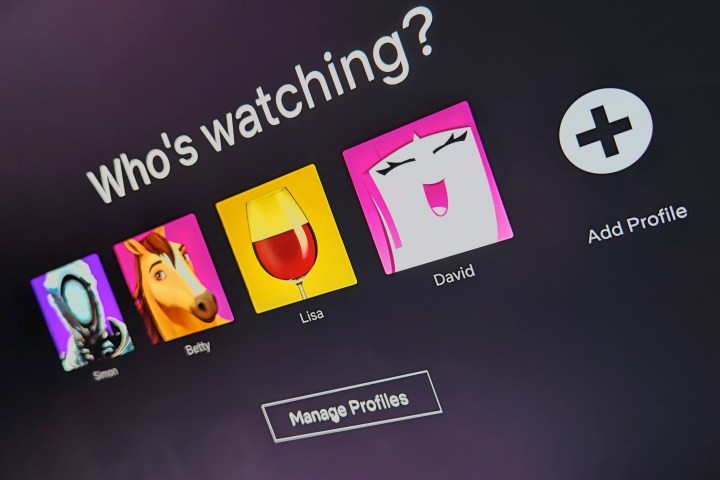As a Canadian, I am now going to be among the first lucky people to contend with Netflix’s new rules around account sharing. As a parent of one university student and one soon-to-be university student, I’m also among the first people who will have to tell their kid — in true Canadian style — sorry, no more Netflix for you.

See, my son attends school about 45 minutes away from home. Not far at all by university (or college for my American friends) standards, but still far enough that he no longer qualifies as a household member, according to Netflix.
In an email sent to its Canadian subscribers on February 9, the company made it crystal clear right in the subject line: “Netflix is for a single household.” Not, in other words, for a single family, no matter how you may personally define family.
So despite the fact that I pay for a Netflix Premium subscription ($21 Canadian per month), which entitles me to watch Netflix on up to four screens simultaneously, and despite the fact that there are only three humans in our house right now, all four of those screens have to be in the same physical location (or at least, on the same Wi-Fi network).
There is another workaround, but you’re not going to like it.
My choice, should I want to preserve my son’s ability to access Netflix while he’s at school, is to pay an additional $8 Canadian per month, which would let him port his profile to a subaccount, and give him the same 4K/HDR/Spatial audio level of quality we get at home, but only on a single device — no multiple screens for him.
At first, I thought I might be able to take advantage of Netflix’s travel allowance to get over this hurdle. The company will let you keep streaming from a remote location like a hotel or Airbnb without penalty. But there’s a catch. It only works on a device that has been previously assigned an IP address from your primary location (which Netflix requires that you declare), and it only works for 30 days. If you’re gone for longer than that, you’ll need to switch your primary location or no more Cobra Kai for you.
There is another workaround, but you’re not going to like it. As long as you only watch Netflix on non-TV devices, (phones, tablets, laptops, etc.), you don’t need to declare a primary location and Netflix will not automatically assign one to you. So as long as everyone’s good with gathering around a 10-inch iPad to get their streaming fix (or perhaps four different iPads?), for the moment, your household members can be in different locations.
I wouldn’t count on that as a long-term solution. If Netflix got wise to the amount of money it was leaving on the table because of password sharing, you can bet it will be keeping a close eye on how many folks have never declared a primary location.
I’m not gonna lie. I’m pretty steamed. We pay a lot for our various streaming services — more, frankly, than we ever spent on cable alone — and I don’t think it’s unreasonable to expect that my immediate family should be able to access those services. And I see no reason why a student, who is only outside of the household for nine months of the year, should suddenly find themselves cut off.
It feels like Netflix is beginning to act like a cable company, where a physical location actually matters. It feels like Netflix is punishing my kid for being a student away from home. And it’s making me consider punishing Netflix by taking my streaming business elsewhere.



